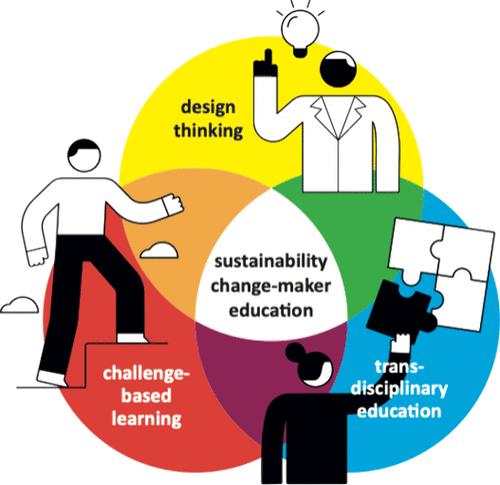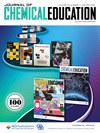Da Vinci Project: Educating Sustainability Change-Makers with Transdisciplinary Challenge-Based Learning and Design Thinking
IF 2.5
3区 教育学
Q2 CHEMISTRY, MULTIDISCIPLINARY
引用次数: 0
Abstract
Sustainability transitions need professionals with specific skills and attitudes that students often do not develop in their regular chemistry education. To foster sustainability change-maker competencies, we suggest augmenting higher education curricula, e.g., chemical degree programs, with transdisciplinary challenge-based learning combined with design thinking. The Da Vinci Project at Utrecht University (UU) in The Netherlands explores this approach, aiming to cultivate the undergraduates’ sustainability change-maker competencies. After five years of experience, we reflected on the students’ learning outcomes in this UU honors program. We conclude that transdisciplinary challenge-based education combined with design thinking provides unique opportunities for students to develop valuable skills and attitudes for navigating sustainability transitions, including the transition toward sustainable chemistry. These involve collaboration, communication, creative thinking, integrative problem-solving, stakeholder engagement, openness, empathy, the ability to deal with uncertainty and complexity, self-awareness, critical reflection, courage, and perseverance.

达芬奇项目:通过跨学科挑战式学习和设计思维教育可持续发展的变革者
可持续发展转型需要具备特定技能和态度的专业人员,而学生在常规化学教育中往往培养不出这些技能和态度。为了培养可持续发展变革者的能力,我们建议在高等教育课程(如化学学位课程)中增加跨学科挑战式学习和设计思维。荷兰乌特勒支大学(UU)的达芬奇项目探索了这一方法,旨在培养本科生的可持续变革能力。经过五年的经验积累,我们对乌特勒支大学这一荣誉项目中学生的学习成果进行了反思。我们得出的结论是,跨学科挑战式教育与设计思维相结合,为学生提供了独特的机会,培养他们在可持续发展转型(包括向可持续化学转型)过程中的宝贵技能和态度。这些技能和态度涉及合作、沟通、创造性思维、综合解决问题、利益相关者参与、开放性、同理心、应对不确定性和复杂性的能力、自我意识、批判性反思、勇气和毅力。
本文章由计算机程序翻译,如有差异,请以英文原文为准。
求助全文
约1分钟内获得全文
求助全文
来源期刊

Journal of Chemical Education
化学-化学综合
CiteScore
5.60
自引率
50.00%
发文量
465
审稿时长
6.5 months
期刊介绍:
The Journal of Chemical Education is the official journal of the Division of Chemical Education of the American Chemical Society, co-published with the American Chemical Society Publications Division. Launched in 1924, the Journal of Chemical Education is the world’s premier chemical education journal. The Journal publishes peer-reviewed articles and related information as a resource to those in the field of chemical education and to those institutions that serve them. JCE typically addresses chemical content, activities, laboratory experiments, instructional methods, and pedagogies. The Journal serves as a means of communication among people across the world who are interested in the teaching and learning of chemistry. This includes instructors of chemistry from middle school through graduate school, professional staff who support these teaching activities, as well as some scientists in commerce, industry, and government.
 求助内容:
求助内容: 应助结果提醒方式:
应助结果提醒方式:


